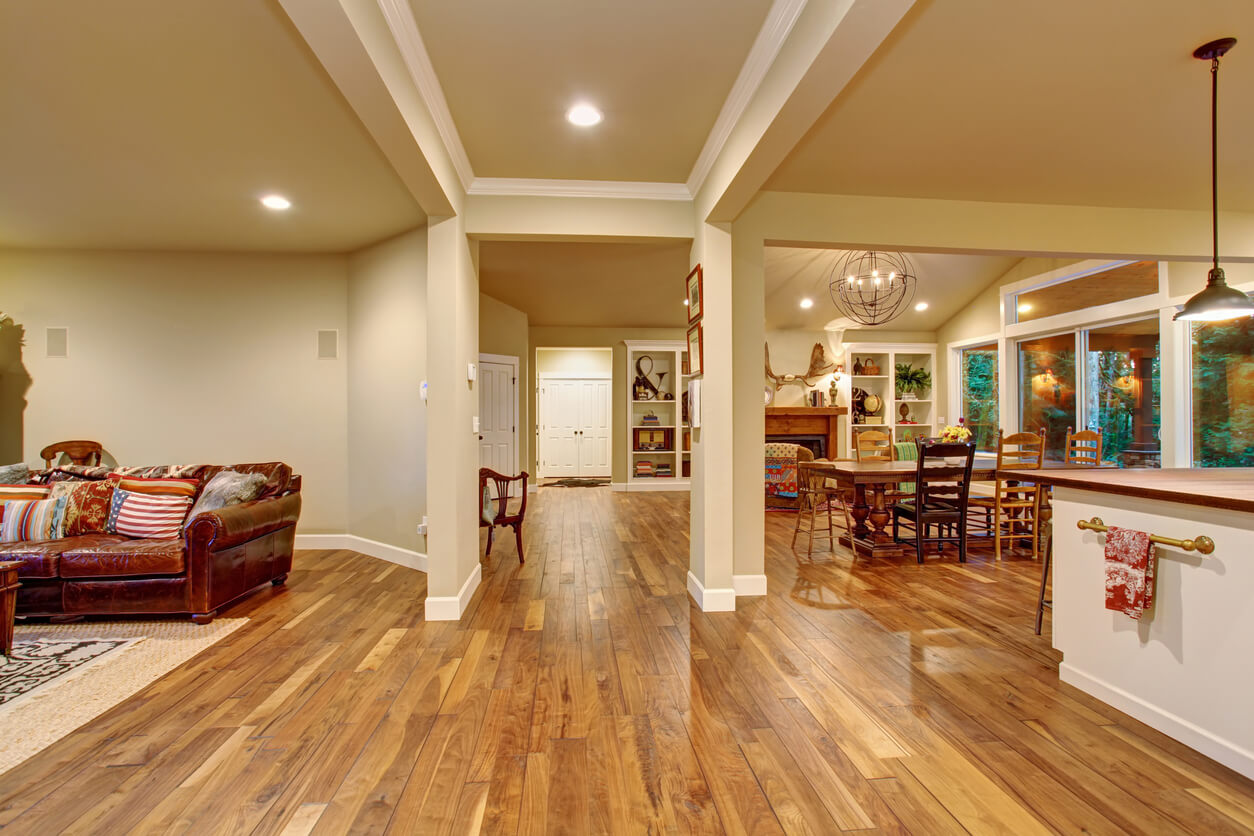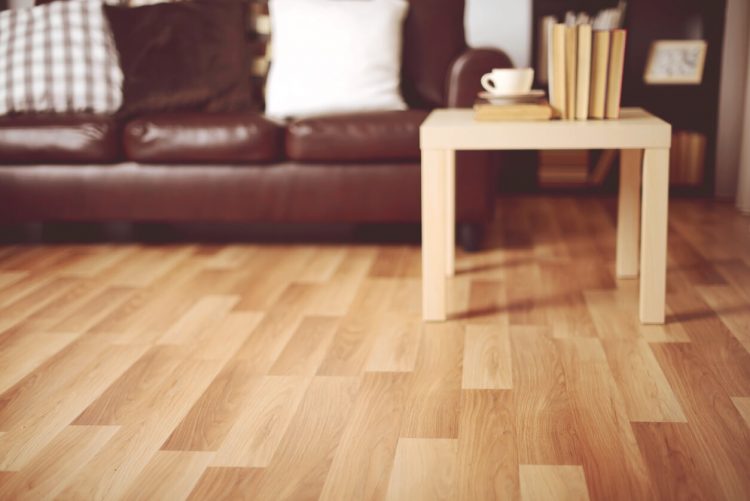10 Differences Between Engineered Hardwood Floors and Solid Hardwood Floors
- Published By: District Floor Depot

Perhaps you are building your dream home and you are searching for hardwood floors that will suit the space perfectly. Perhaps you are replacing your hardwood flooring. Either way, you have a wide range of options to choose from.
You might be wondering whether you should choose engineered hardwood flooring or solid hardwood flooring. There are many differences between these two options. We’ve got you covered!
1. Composition
Solid hardwood is made out of actual wood. Engineered hardwood is too, but there’s a slight difference. The top layer of engineered hardwood consists of hardwood veneer while the bottom layer is made with hardwood or plywood.
Always ask for detailed product descriptions when you are purchasing hardwood flooring. You will want to know exactly what you are buying. Ask for any technical information you will need before making this investment.
2. Durability
Both types of wood are quite durable. However, you should keep in mind that wood contracts and expands. Due to this issue, your hardwood floor will need to be re-secured to the sub-floor at some point in the future.
It is good to know that engineered wood flooring is less susceptible to expansion and contraction that is related to temperature variations than solid hardwood flooring is. Engineered hardwood is a lot more resistant to buckling and rippling than solid hardwood is. Look for the highest quality engineered hardwood floors if you want to prevent these issues.
3. Installation
Solid hardwood floors should be installed above ground level. It is best to have a professional install your hardwood flooring. You should also keep in mind that the wood naturally contracts and expands. You will need to make sure that you allow enough space in the room for this natural occurrence. Make sure the floorboards are not too loose, otherwise this will cause them to buckle and the gaps in your floor will become way too wide.
On the other hand, engineered hardwood floors can be installed using glue, nails, and staples. They can be installed above or below radiant heat. Although these floors are much easier to install than solid hardwood floors, it is best to leave this work to the professionals. You will get more aesthetically pleasing floors, and they will get the job done a lot faster.
4. Affordability
In most cases, engineered hardwood floors are a lot cheaper than solid hardwood floors. However, the pricing of hardwood flooring depends on the wood species and the quality of wood you are purchasing. This is definitely something to keep in mind. You might get a great deal on solid hardwood floors if you choose a certain species of wood.
5. Appearance
Solid hardwood floorboards are usually narrower than their engineered hardwood counterparts. Furthermore, solid hardwood flooring has very tight seams between its boards. You will have a lot more options to choose from when you opt for a solid hardwood floor. A wide range of species and colors are available. You will be able to choose between pre-finished and unfinished floorboards.
On the other hand, if you opt for engineered hardwood floors, you will have limited options. Engineered hardwood flooring is usually sold pre-finished. The floorboards are usually wider and some pre-finished hardwood flooring has slightly beveled edges. This creates slight grooves between the boards. The seams between each board are usually quite tight.
6. Water and Heat Resistance
This is an important factor to consider. You probably shouldn’t install solid hardwood flooring against concrete slabs. The humidity that migrates through the flooring can cause solid hardwood to swell and warp.
Engineered hardwood flooring is a better option if you live in a very humid environment. It is less susceptible to warping. If you have to install hardwood floors against concrete slabs, you should choose to install engineered hardwood floors.
7. Care and Cleaning
Solid hardwood floors are easy to clean. Just sweep and vacuum them and you should be just fine. You might need to occasionally damp-mop them with an approved wood cleaner.
Solid hardwood floors are extremely low-maintenance. The process for cleaning and taking care of engineered hardwood floors is exactly the same. You cannot go wrong either way.
8. Maintenance
Solid hardwood floors can be sanded and refinished several times. On the other hand, engineered hardwood flooring can only be refinished once, or twice at the very most, before the hardwood layer on the surface is exhausted. This is definitely something to keep in mind when you are deciding between solid hardwood floors and engineered hardwood floors.
9. Lifespan
Solid hardwood floors last for an average of about 30 years. That is a huge amount of time. Sometimes, it even lasts for about 100 years. This is because it can be sanded and refinished many times.
On the other hand, engineered hardwood floors usually last for about 20-30 years. While this isn’t the end of the world, engineered hardwood floors can’t last quite as long as solid hardwood floors can. This is something to consider when you are choosing which type of hardwood floors you would like in your home. If you want to have floors that last for what seems like an eternity, you should definitely opt for solid hardwood floors.
10. Resale Value

Solid hardwood flooring does not have a drastically different appearance than engineered hardwood flooring does. However, real estate professionals and home buyers will often prefer solid hardwood flooring because it lasts longer. If you want to sell your home eventually, it is definitely a good idea to purchase solid hardwood floors instead of engineered hardwood floors. That being said, engineered hardwood floors won’t usually be a turnoff for potential buyers. However, they will recognize that this type of flooring has a shorter lifespan.
Conclusion
Make sure you take all of these factors into account before you decide whether you should purchase engineered hardwood flooring or solid hardwood flooring. Either way, you’ll be making a great decision. Your flooring is an extremely important element of your home.
You will want something that looks cozy, warm, and inviting. You’ll also want to make sure that your floor is low-maintenance and easy to clean. We hope we have helped you choose the perfect hardwood floors!
